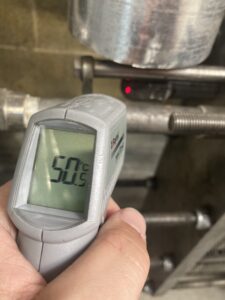
Thomas Leov
Consultant — Energy
Helping a high energy consumption business reduce its costs and emissions
So when the price of diesel continues to rise, it’s time to investigate energy efficiency and the alternatives to fossil fuels.
Ahikā worked with Preens Apparelmaster in Dunedin to reduce the cost of energy and make their operations more efficient.


Consultant — Energy

Senior Consultant – Energy & Carbon Director
Calculating the inputs and outputs of water heating processes was the first step. Preens had no way of measuring the inputs and outputs of their diesel-powered boilers or waste water heat exchanger.
We mapped-out a model of the entire system, measuring energy and water inputs, outputs, and leaks. Using this baseline data, we calculate where gains from energy recovery and efficiencies would make the most difference to reducing costs and emissions.
We’ve identified where leaks were detected, and where energy loss can be minimised by adding heat exchangers to machinery waste outlets (flues for steam, and water pipes). Our recommended options include energy efficient water heaters to replace old inefficient ones, and the replacement of two diesel-fuelled boilers with one biomass boiler.
Preens has committed to reducing energy consumption and emissions. The next step is to prepare an application to the Government Investment in Decarbonising Industry Fund (GIDI). Working through this process together ensures the most cost-effective, emissions-reducing improvements are selected, funded and installed.

Level 3
2 Dowling Street
Dunedin 9016